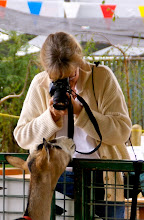 GDP or gross domestic product is the most common economic measure of a society's well-being and is defined as the total paid for goods and services by households in a country in a year. In other words, conventional economic wisdom is that a society that buys more and more and more stuff is a happy society, regardless of what that stuff is, how much stuff the society already has, or the real cost of all that consumption of stuff. In a recent article in Sojourners magazine, Herman Daly aptly said with regard to GDP:
GDP or gross domestic product is the most common economic measure of a society's well-being and is defined as the total paid for goods and services by households in a country in a year. In other words, conventional economic wisdom is that a society that buys more and more and more stuff is a happy society, regardless of what that stuff is, how much stuff the society already has, or the real cost of all that consumption of stuff. In a recent article in Sojourners magazine, Herman Daly aptly said with regard to GDP: GDP as we currently know it conflates benefits and costs as "economic activity," and that is what GDP measures -- how fast the wheels are turning, not where the car is going.Moreover:
...GDP is ... the best index we have of the combined effects of pollution, depletion, congestion, and loss of biodiversity.
...
It is a measure of the damage we inflict on finite, non-growing creation in order to support more people at higher per capita levels of resource use.
Today's front yard critter count:
Raccoons: 1
Deer: 0
Towhees in the tree outside the kitchen window: 1
Question: What is the bird in the photograph?
Answer: A Turkey Vulture on Andros Island in the Bahamas. Beautiful wings, eh?
Question: Do you know any fun facts about Turkey Vultures?
Answer: Yup. That wing span can extend up to 72 inches; they can live 20 years in captivity; and their genus name means "purifier." Turkey Vultures lack feathers on their heads to keep them guck-free.and medical researchers are studying them to determine how they stay healthy in spite of their diet.
